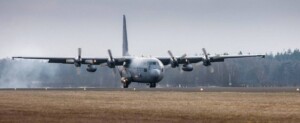German grant of € 10 million for South Darfur development project
The German Federal Ministry of Economic Cooperation and Development (BMZ) has granted € 10 million for a project to enhance livelihood in South Darfur.
The three-year project dubbed “South Darfur Livelihoods and Agricultural Infrastructure Development Project” aims to support reconstruction efforts in the state.
World Vision International will implement the project in the localities of Nyala, Kass, Ed El Fursan, Kubum, and Rahad El Birdi, Sudan Tribune reported on Saturday.
 Herders guide their cattle to a water point provided by Unamid in the Khor Abeche camp, South Darfur, July 2014 (Albert González Farran/Unamid)
Herders guide their cattle to a water point provided by Unamid in the Khor Abeche camp, South Darfur, July 2014 (Albert González Farran/Unamid)
The German Federal Ministry of Economic Cooperation and Development (BMZ) has granted € 10 million for a project to enhance livelihood in South Darfur.
The three-year project dubbed “South Darfur Livelihoods and Agricultural Infrastructure Development Project” aims to support reconstruction efforts in the state.
World Vision International will implement the project in the localities of Nyala, Kass, Ed El Fursan, Kubum, and Rahad El Birdi, Sudan Tribune reported on Saturday.
Speaking at the inauguration ceremony in Khartoum, Idris Suleiman, Minister of International Cooperation, praised Germany’s role in providing assistance to Sudan.
He described the livelihood project as an integrated development project, and said that the Sudanese government seeks to move from humanitarian aid to development projects, and
According to the country programme director of World Vision International, Vince Edwards, the project “presents a unique opportunity for the targeted beneficiaries to diversify their source of livelihoods, increase their abilities to earn income and take care of their families”.
The project will focus on supporting agro-pastoralists and pastoralists households through activities such as milk and honey production and processing.
“The project will also focus on improving agricultural infrastructure through establishing micro-irrigation schemes and water harvesting structures aimed at reducing the communities’ dependency on rain-fed agriculture,” Edwards added.











 and then
and then